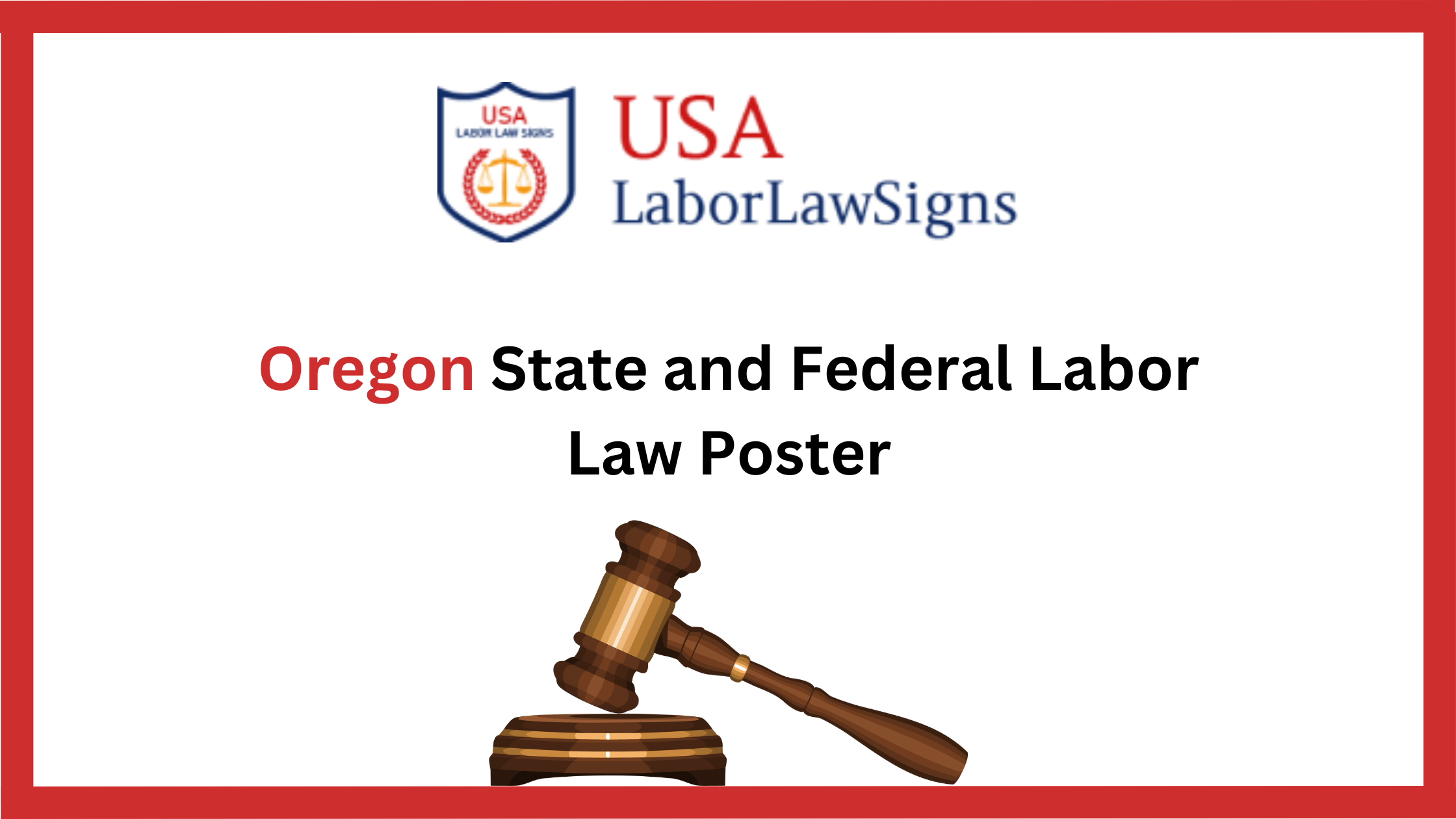Why the Kentucky Labor Law Poster is a Must-Have for Every Business Owner?
Understanding and complying with labor laws is an essential responsibility of every business owner. In the state of Kentucky, employers are required to display the Kentucky labor law poster in a prominent location within the workplace. This comprehensive article highlights the importance of the Kentucky labor law poster, discussing key facts, legal requirements, and the benefits it provides to employers and employees.
Benefits of Kentucky Labor Law Poster
The Purpose of the Kentucky Labor Law Poster
The Kentucky labor law poster serves as a consolidated source of information that informs employees about their rights and protections under state and federal labor laws. It provides crucial details regarding minimum wage rates, workplace safety regulations, anti-discrimination laws, workers’ compensation, and other important employment regulations specific to Kentucky.
Legal Requirement for Displaying the Kentucky Labor Law Poster
Under Kentucky law, all employers must prominently display the Kentucky labor law poster in an area accessible to all employees. This requirement applies to both public and private sector employers, regardless of the workforce’s size or the business’s nature. Compliance with this mandate ensures that employees have easy access to vital information regarding their rights and obligations.
Content Included in the Kentucky Labor Law Poster
The Kentucky labor law poster includes important information about state and federal labor laws. It typically covers laws such as the Kentucky Wage and Hour Act, Kentucky Occupational Safety and Health (KY OSH) regulations, the Kentucky Civil Rights Act, the Family and Medical Leave Act (FMLA), the Equal Employment Opportunity Commission (EEOC) regulations, and the Kentucky Workers’ Compensation Act.
Location of Display for the Kentucky Labor Law Poster
The Kentucky labor law poster must be displayed in a conspicuous workplace where all employees can easily see and access it. Common areas such as break rooms, employee entrances, or near time clocks are suitable places for displaying the poster. It is essential to ensure that the poster is posted in English. However, if many employees primarily speak a language other than English, translations should be provided.
Online Availability of the Kentucky Labor Law Poster
The Kentucky labor law poster is available for download online. The Kentucky Labor Cabinet provides a free downloadable poster version on its official website. Employers can access and print the poster to fulfill the display requirement. It is crucial to periodically check for updates on the official website to ensure that the most current version of the poster is displayed.
Additional Required Posters in Kentucky
Apart from the Kentucky labor law poster, certain industries or businesses in Kentucky may have additional posting requirements. For instance, healthcare facilities, construction sites, and restaurants may need to display specific industry-related posters. Employers should consult the Kentucky Labor Cabinet or seek legal guidance to ensure compliance with all relevant posting obligations.
Consequences of Failing to Display the Kentucky Labor Law Poster
Failure to display the Kentucky labor law poster can lead to penalties and fines imposed by the Kentucky Labor Cabinet. The department conducts periodic inspections to ensure compliance with labor laws, and non-compliance can result in financial consequences for employers. Additionally, not displaying the poster can damage employee relations and create the perception of non-compliance, potentially leading to legal disputes.
Remote Workers and the Kentucky Labor Law Poster
Even for remote workers based in Kentucky, employers are required to provide the necessary labor law information. Electronic distribution of the Kentucky labor law poster via email or through a secure internal company website is an acceptable method of compliance. Employers should ensure that remote workers have easy access to labor law information to stay informed about their rights and responsibilities.
Benefits of Displaying the Kentucky Labor Law Poster
Displaying the Kentucky labor law poster offers numerous benefits to employers. It helps ensure compliance with labor laws, reduces the risk of penalties and fines, and fosters a positive work environment. Additionally, it demonstrates an employer’s commitment to employee rights and can enhance employee morale, trust, and productivity.
Benefits for Employees
The Kentucky labor law poster provides valuable information about employees’ rights, protections, and avenues for reporting violations. It promotes awareness of minimum wage rates, safety regulations, anti-discrimination laws, and other essential employment standards. This empowers employees to assert their rights and seek assistance if they believe their rights have been violated.
Conclusion
The Kentucky labor law poster is a vital requirement for every business owner in the state. Displaying the poster ensures compliance with labor laws, fosters a fair and safe work environment, and empowers employees with knowledge of their rights.
By understanding the significance of the Kentucky labor law poster and fulfilling the legal obligations, employers can uphold their responsibilities, avoid penalties, and cultivate positive employee relations.
Read Related: Ultimate Guide to Understanding Columbia Labor Law Poster










